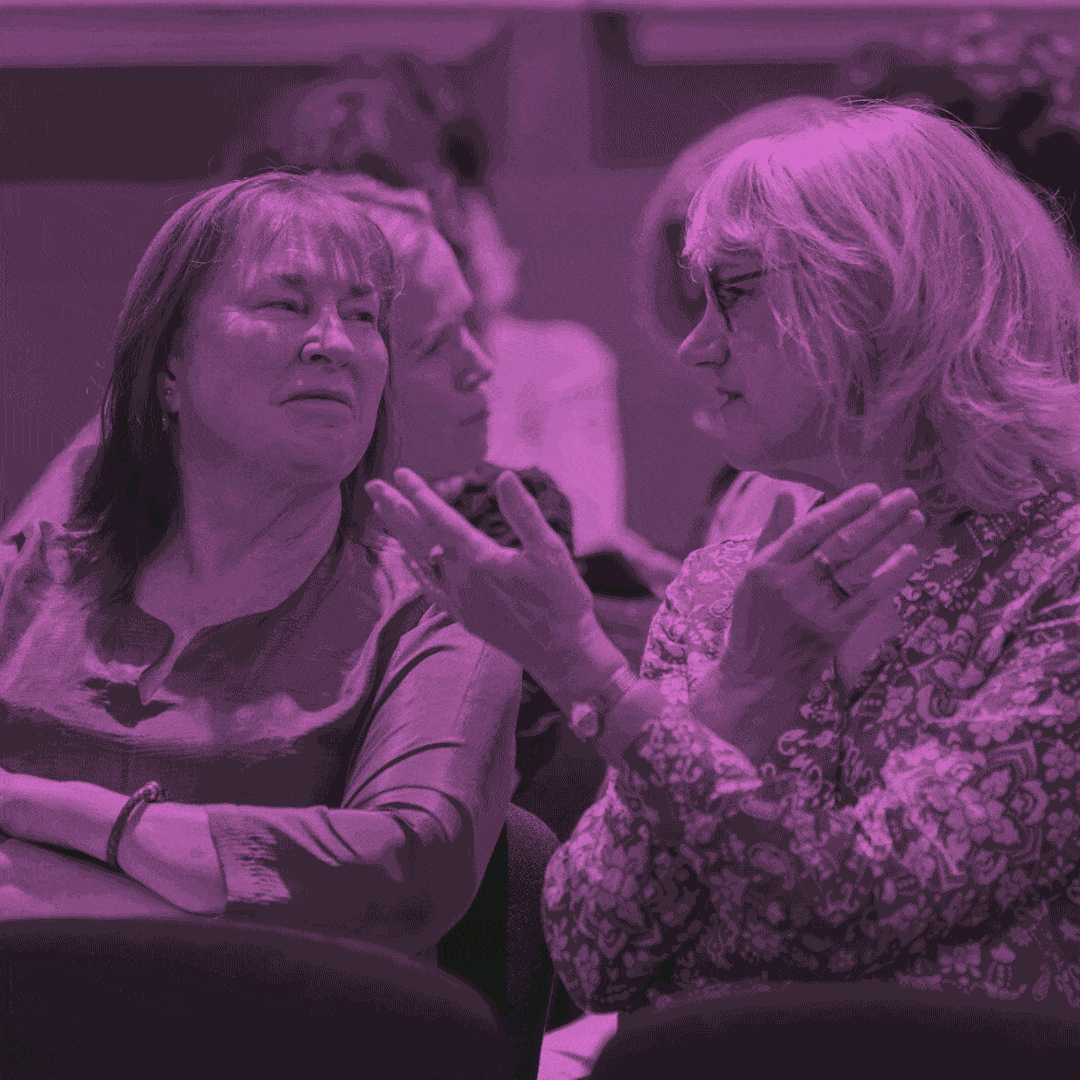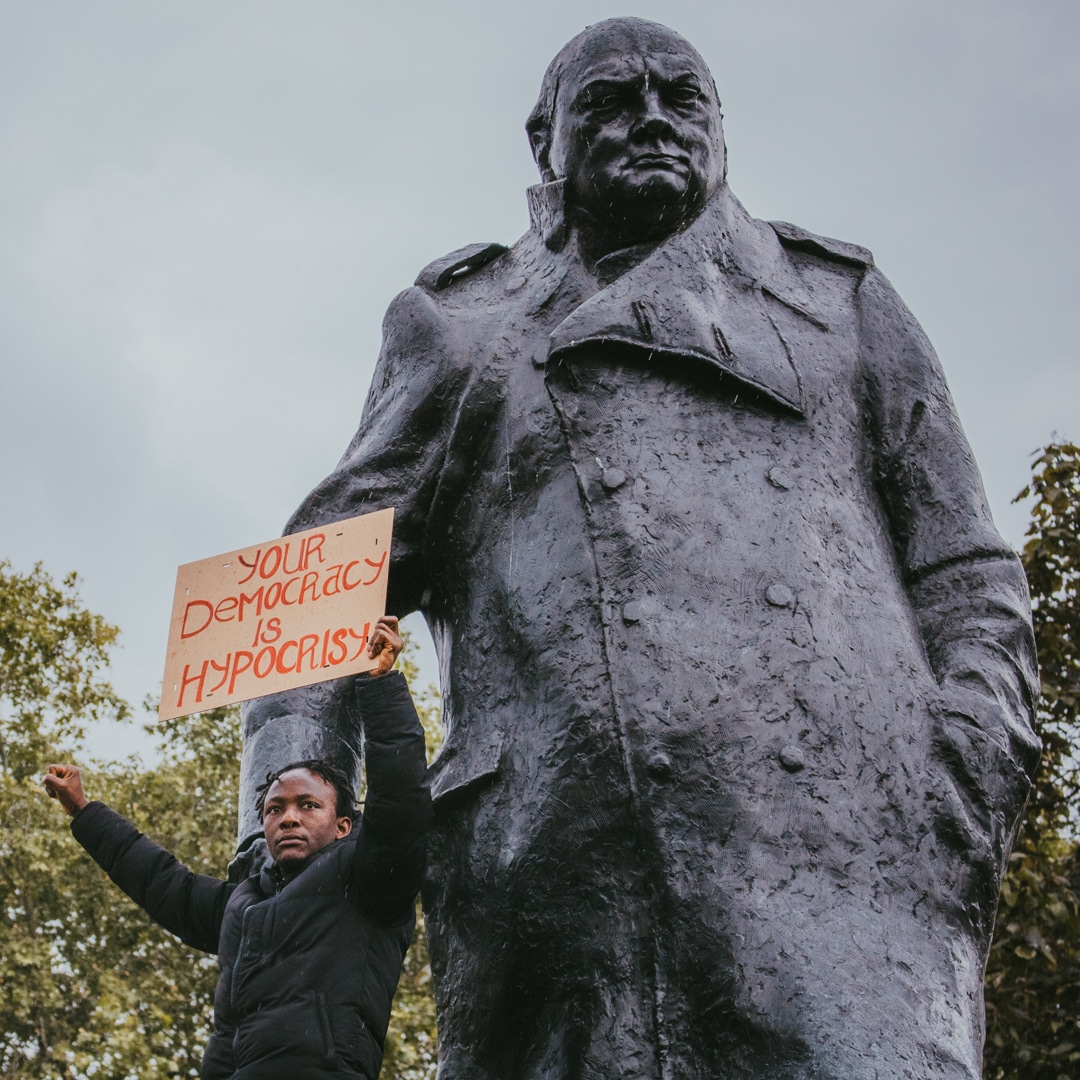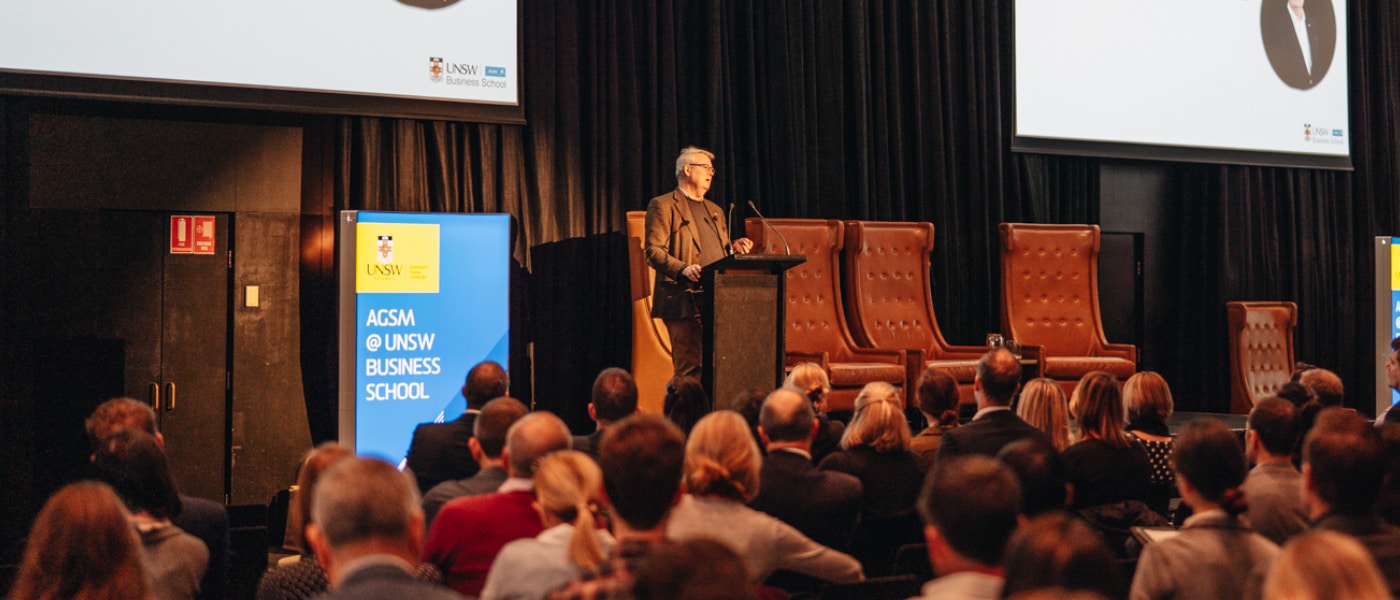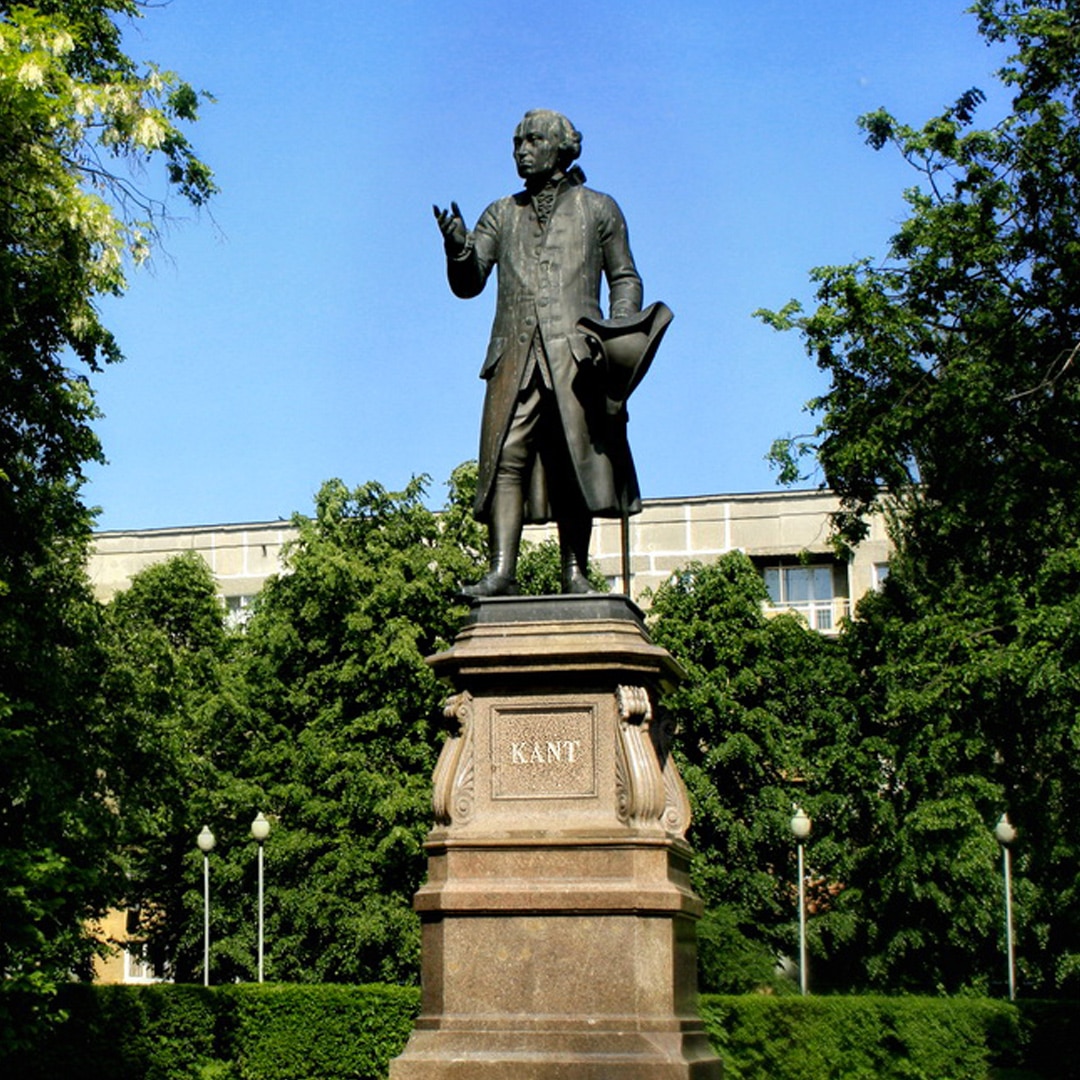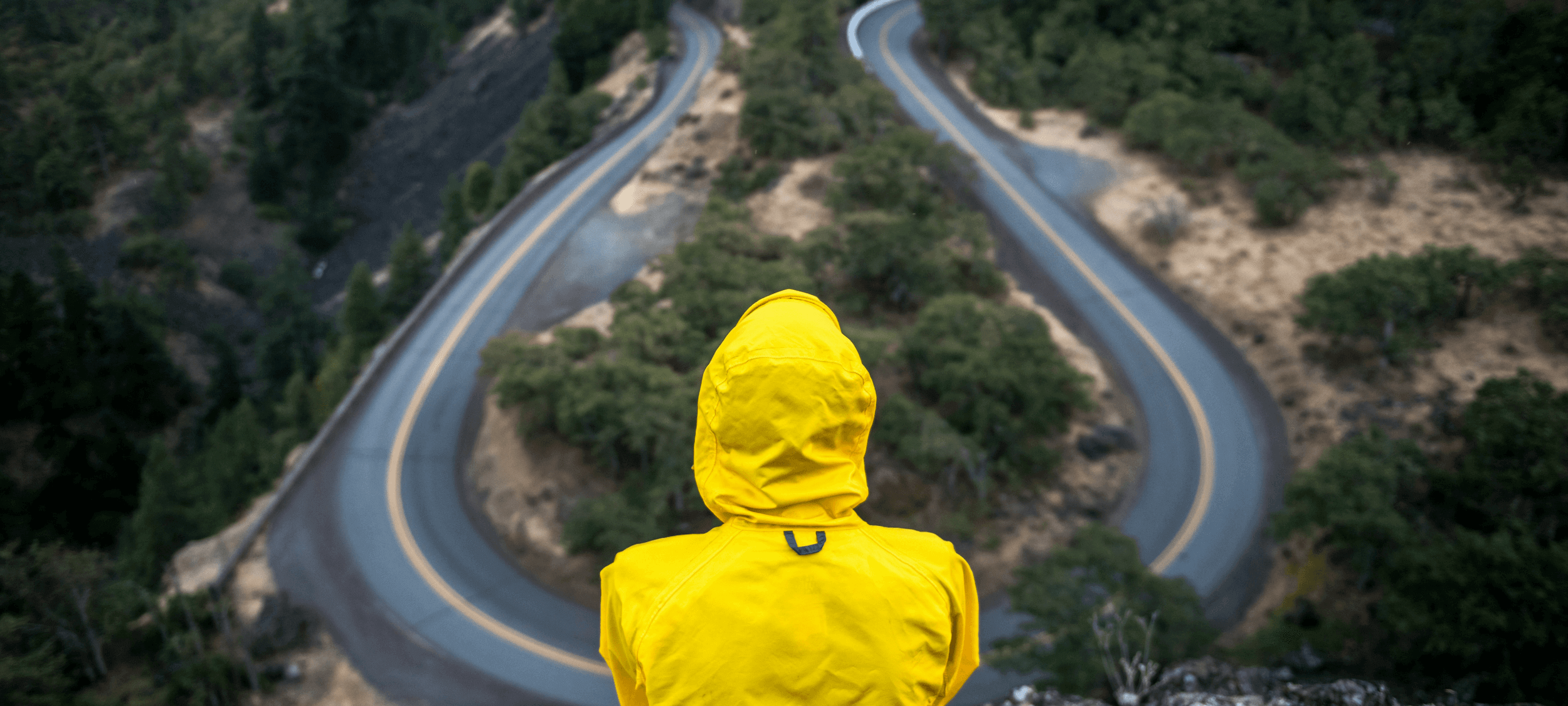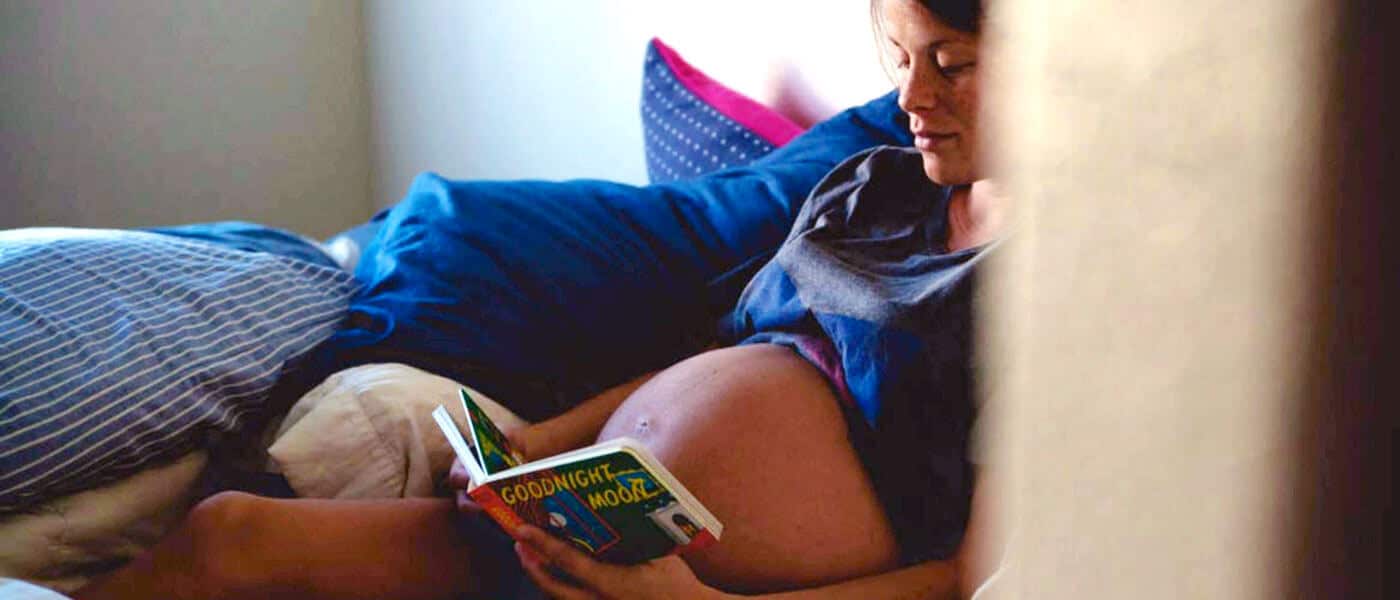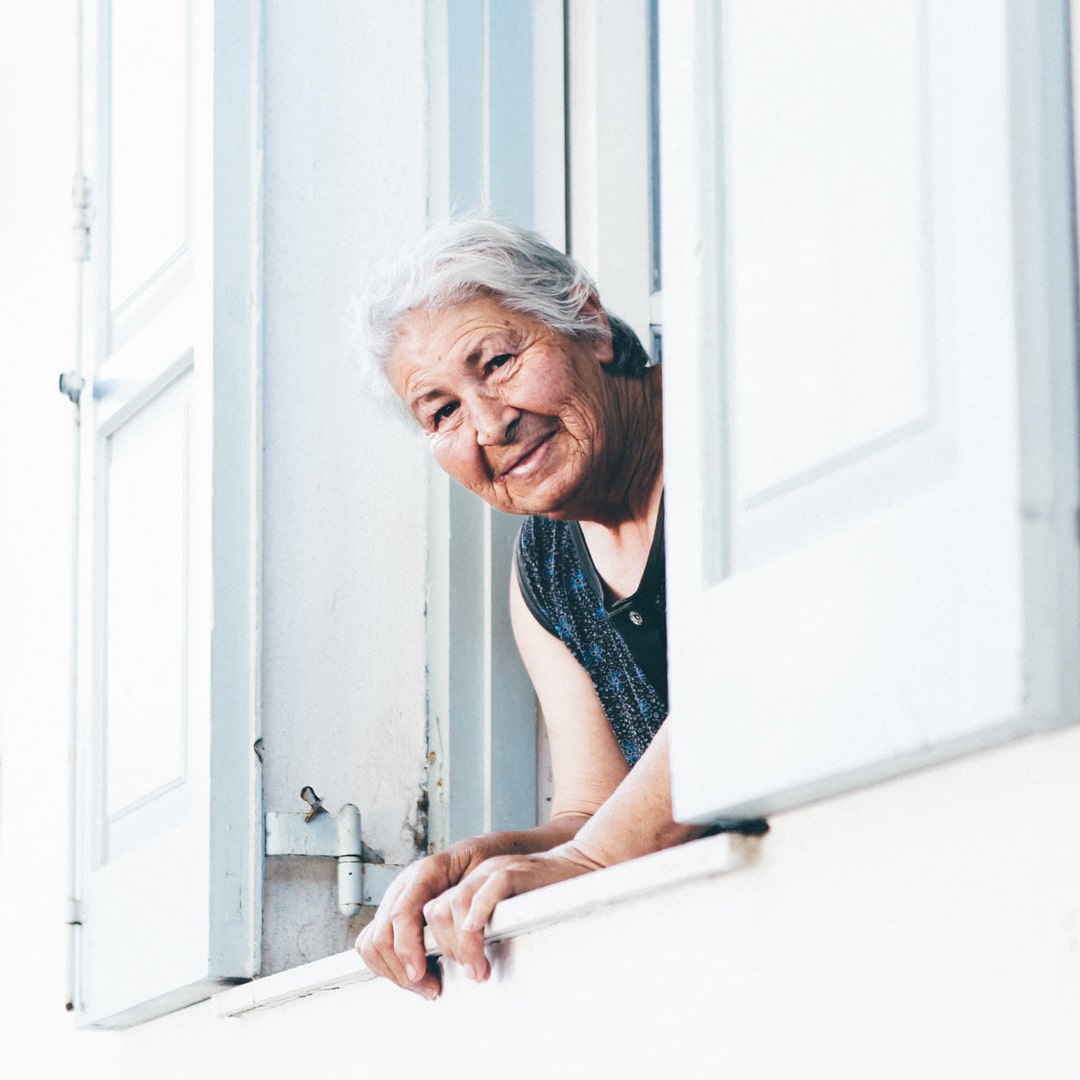Living well or comfortably waiting to die?

Living well or comfortably waiting to die?
Opinion + AnalysisHealth + WellbeingRelationships
BY Matthew Beard The Ethics Centre 25 AUG 2020
It can be argued that life isn’t something we have, it’s something we do.
It is a set of activities that we can fuse with meaning. There doesn’t seem much value to living if all we do with it is exist. More is demanded of us.
One of my favourite quotes about living comes from French Philosopher, Jean Jacques Rousseau.
“To live is not to breathe but to act. It is to make use of our organs, our senses, our faculties, of all the parts of ourselves which give us the sentiment of our existence. The man who has lived the most is not he who has counted the most years but he who has most felt life. Men have been buried at one hundred who have died at their birth.”
Rousseau’s quote isn’t just sage; it’s inspiring. It makes us want to live better – more fully. It captures an idea that moral philosophers have been exploring for thousands of years: what it means to ‘live well’ – to have a life worth living.
Unfortunately, it also illustrates a bigger problem. Because we tend to interpret Rousseau’s guide to ‘Really Good Living’ in a particularly narrow way – that it’s all about vitality, seizing the day and YOLO.
This is a reality that professionals working in the aged care sector should know all too well. They work directly with people who don’t have full use of their organs, their faculties or their senses.
Months ago, before the pandemic, I presented Rousseau’s thoughts to a room full of aged care professionals. They felt the same inspiration and agreement that I felt.
That’s a problem.
If the good life looks like a robust, activity-filled life, what does that tell us about the possibility for the elderly to live well? And if we don’t believe that the elderly can live well, what does that mean for aged care?
The findings from the recent Aged Care Royal Commission reveal galling evidence of misconduct, negligence and at times outright abuse. The most vulnerable members of our communities, and our families, have been subject to mistreatment due in part to a commercial drive to increase the profitability of aged care facilities at the expense of person-centred care.
More recently, we have seen aged care at the centre of the Covid-19 pandemic. Over 250 deaths have been recorded in facilities across Australia from the virus and our State and Federal governments are fighting out responsibility.
Elderly residents have been prevented from being treated in hospitals, their facilities have been drastically understaffed and public commentators have wondered whether we ought simply to allow more of them to die.
Absent from the discussion thus far has been the question of ‘the good life’. That’s understandable given the range of much more immediate and serious concerns facing the aged care sector, but it is one that cannot be ignored, despite the urgent matters before us.
Whilst leaders and decision-makers must be held accountable, there is a deeper sense of shared responsibility we should all carry when it comes to our attitudes toward ageing and aged care.
In 2015, celebrity chef and aged care advocate Maggie Beer told The Ethics Centre that she wanted “to create a sense of outrage about [elderly people] who are merely existing”. Since then she has gone on to provide evidence to the Royal Commission because she believes that food is about so much more than nutrition. It’s about memory, community, pleasure and taking care and pride in your work.
Consider the evidence given around food standards in aged care. There have been suggestions that uneaten food is being collected and reused in the kitchens for the next meal; that there is a “race to the bottom” to cut costs of meals at the expense of quality, and that the retailers selling to aged care facilities wildly inflate their prices. The result? Bad food for premium prices.
We should be disturbed by this. This food doesn’t even permit people to exist, let alone flourish. It leaves them wasting away, undernourished. It’s abhorrent. But what should be the appropriate standard for food within aged care? How should we determine what’s acceptable? Do we need food that is merely nutritious and of an acceptable standard, or does it need to do more than that?
Answering that question requires us to confront an underlying question: Do we believe aged care is simply about providing people’s basic needs until they eventually die?
Or is it much more than that? Is it about ensuring that every remaining moment of life provides the “sentiment of existence” that Rousseau was concerned with?
When you look at the testimony provided to the Aged Care Royal Commission, a clear answer begins to emerge. Alongside terms like ‘rights’, ‘harms’ and ‘fairness’ –which capture the bare minimum of ethical treatment for other people – appear words such as ‘empathy’, ‘love’ and ‘connection’.
These words capture more than basic respect for persons, they capture a higher standard of how we should relate to other people. They’re compassionate words. People are expressing a demand not just for the elderly to be cared for but to be cared about.
Counsel assisting the Royal Commission, Peter Gray QC, recently told the commission that “a philosophical shift is required, placing the people receiving care at the centre of quality and safety regulation. This means a new system, empowering them and respecting their rights.”
It’s clear that a philosophical shift is necessary. However, I would argue that what’s not clear is if ‘person-centred care’ is enough. There is an ageist belief embedded within our society that all of the things that make life worth living are unavailable to the elderly.
As long as we accept that to be true, we’ll be satisfied providing a level of care that simply avoids harm, rather than one that provides for a rich, meaningful and satisfying life.
Unless we are able to confront the underlying social belief that at a certain age, all that remains for you in life is to die, we won’t be able to provide the kind of empowerment you felt reading Rousseau at the start of this article.
What it will do is provide a better version of what we already believe – that once you are at a certain age and stage of life, ‘living’ is no longer a real option? You must settle for existing.
At this stage, we can pump you full of our care, love, empathy and respect – and most people accept that we should do that – but you are no longer living for yourself. You are waiting, as humanely as possible, to die.
Unless we confront this deeper belief, any positive movement in aged care will struggle to provide residents with what we all hope for – a life worth living.
*This is an edited version of an article first published on 10th September 2019
Ethics in your inbox.
Get the latest inspiration, intelligence, events & more.
By signing up you agree to our privacy policy
You might be interested in…
Opinion + Analysis
Health + Wellbeing, Relationships
Mutuality of care in a pandemic
Explainer
Politics + Human Rights, Relationships
Ethics Explainer: Social philosophy
Opinion + Analysis
Health + Wellbeing, Relationships
Are there any powerful swear words left?
Opinion + Analysis
Health + Wellbeing, Society + Culture
Does ethical porn exist?
BY Matthew Beard
Matt is a moral philosopher with a background in applied and military ethics. In 2016, Matt won the Australasian Association of Philosophy prize for media engagement. Formerly a fellow at The Ethics Centre, Matt is currently host on ABC’s Short & Curly podcast and the Vincent Fairfax Fellowship Program Director.
BY The Ethics Centre
The Ethics Centre is a not-for-profit organisation developing innovative programs, services and experiences, designed to bring ethics to the centre of professional and personal life.
To deal with this crisis, we need to talk about ethics, not economics

To deal with this crisis, we need to talk about ethics, not economics
Opinion + AnalysisPolitics + Human RightsRelationships
BY Matthew Beard The Ethics Centre 6 AUG 2020
As Melbourne goes into the most intense lockdown measures we’ve seen during the Covid-19 pandemic, activity in the state grinds to a halt.
In media outlets around the country, contrarian commentators are running pell-mell to explain why the lockdowns are the wrong move, and why we should be hastening to open the economy, even if it means paying a price in lives.
Others have been sprinting at a similar speed to disprove them – perhaps moving too fast, and in so doing so, having the argument on their terms.
Consider two of the loudest critics of the purpose of the lockdown: UNSW Economics professor Gigi Forster and Adam Creighton, economics editor at the Australian newspaper. Forster has argued that the costs – measured in terms of overall wellbeing – are more greatly increased by our response to Covid-19 than by the virus itself.
Creighton’s arguments are related, though he has emphasised more the difference between quantity and quality of life. On the lockdowns in Melbourne, he recently tweeted “What’s the point in being alive if you can’t live?
Shameful what’s occurring in Victoria.
Effective dictatorship declared.
Devastating, destructive power of the state on full display.
Respect for the individual clearly irrelevant.
What’s the point in being alive if you can’t live?— Adam Creighton (@Adam_Creighton) August 2, 2020
Perhaps the loudest response to each of them has been to say that a successful economic exit from the COVID-19 pandemic relies on successfully controlling the virus through measures like lockdowns, social distancing and so on. Even on economic terms, it won’t work to allow the virus to run through the community. We can’t come back economically unless we succeed medically. It’s not a zero-sum game.
I’m not the right person to decide whether or not that argument is correct. But that’s not my primary concern either. Instead, my concern is that in arguing the facts on this particular issue – that economically we are better off by controlling the spread of the virus – we have granted them their first principle. Namely, that the correct course of action is whichever one makes the most sense economically and does the most work to maximise quality of life for the largest number of people.
In granting this principle, we’re rushing over a lot of controversial territory. For instance, we might want to take issue with Creighton’s argument on other grounds – that whilst it is important to be able to live fully, in order to so, we need to be alive. The idea that ‘life is for living’ only makes sense if we also say that some people shouldn’t be permitted to stay alive. And many people won’t want to say that.
The point is, the ‘maximise wellbeing’ argument implies a harsh form of utilitarianism. It suggests we accept that there are some people who will have to pay the price for our flourishing.
Maximising benefit still leaves some people to suffer. Usually, it means leaving the same people who have suffered before to suffer again. After all, the most vulnerable already have a low quality of life, so if they end up dying, statistically speaking, it doesn’t show up as much of a loss.
When we encounter arguments like those of Creighton and Forster, we have a choice to make: what matters most to us? Is our primary concern making as many people as possible as well off as we can? Or do we to stand in solidarity with those who are worst off, and refuse to flourish at their expense?
There are schools of thought and philosophers and arguments that will give you cover whichever way you make that choice. But it is a choice to be made. We can’t just interrogate the conclusions of these arguments, we need to question their starting (and often hidden) premises.
During this pandemic we have started to see some of the hidden premises bubble to the surface. Overwhelmingly, the result has been a discomfort at the idea that we get to decide who we are willing to sacrifice for our collective benefit.
I hope that’s an idea that we remember. Because that’s not a problem that started with COVID-19. Instead, it’s a trade-off that is hard–wired into our economic system. In many ways, it’s perfectly logical to suggest we let more people die from Covid-19 if it means we all benefit. After all, it’s what we’ve always done.
We need to recognise that it’s not just people who champion beliefs and values. It’s the very systems that inform and shape our world.
If we don’t want our collective benefit to be paid for by those who most need our care, we need to do more than debate the people floating this idea. We must interrogate the system that gave rise to those views at all. We need to recognise the ways in which it is our default setting and find the courage to imagine another way of doing things.
It’s often said there are no atheists in the foxholes. It feels like there are also few nihilists in a crisis. Circumstances like these sharpen our moral intuitions and surface underlying tensions in society.
Our responsibility, as well as getting through this and getting each other through this, is to ensure that in times of comfort we retain that ethical sharpness and continue to refuse to flourish when that requires others to fail.
You can contact The Ethics Centre about any of the issues discussed in this article. We offer free counselling for individuals via Ethi-call; professional fee-for-service consulting, leadership and development services; and as a non-profit charity we rely heavily on donations to continue our work, which can be made via our website. Thank you.
Ethics in your inbox.
Get the latest inspiration, intelligence, events & more.
By signing up you agree to our privacy policy
You might be interested in…
Opinion + Analysis
Relationships
In two minds: Why we need to embrace the good and bad in everything
Opinion + Analysis
Politics + Human Rights
The Constitution is incomplete. So let’s finish the job
Big thinker
Relationships
Big Thinker: Joanna Bourke
Opinion + Analysis
Politics + Human Rights, Relationships
Do Australia’s adoption policies act in the best interests of children?
BY Matthew Beard
Matt is a moral philosopher with a background in applied and military ethics. In 2016, Matt won the Australasian Association of Philosophy prize for media engagement. Formerly a fellow at The Ethics Centre, Matt is currently host on ABC’s Short & Curly podcast and the Vincent Fairfax Fellowship Program Director.
BY The Ethics Centre
The Ethics Centre is a not-for-profit organisation developing innovative programs, services and experiences, designed to bring ethics to the centre of professional and personal life.
It takes a village to raise resilience

It takes a village to raise resilience
Opinion + AnalysisRelationships
BY Matthew Beard The Ethics Centre 28 JUL 2020
Several years ago, I was participating in a workshop around moral injury and war trauma in veterans.
A veteran detailed a horrific experience where through a combination of fatigue, bureaucracy and bad decision-making, he had left a reported IED to be defused by local forces, knowing full well it wouldn’t happen. His team had just come in after a long stint and were due for leave that day. He wanted to protect them from further burnout.
Tragically, a civilian convoy hit the IED, and this soldier suddenly saw his base flooded with injured, dying and dead civilians – harmed by an IED he ordered his team to leave for someone else.
The soldier detailed how his life had subsequently progressed. He was discharged from the army, became homeless, turned to substance abuse and lost just about everything before slowly rebuilding the broken pieces of his life. He was in a stable relationship, had secure work and was working with therapists to process what had happened.
After his presentation, the man left and the academics did what academics do: they debriefed and discussed his situation. The direction of the conversation was largely around what we could do to ensure that what happened to this person didn’t happen to other people. How could we provide a level of mental and moral resilience, such that these things wouldn’t be so damaging to warfighters?
For me, this question completely misunderstood the problem. This wasn’t a story about a lack of individual resilience. It was a conspiracy of systemic errors, tragedy and moral complexity.
Look at the systemic factors at play. First, there were problems with the local military operations that meant this soldier’s team were shouldering too much of the load. Second, deployment times and handovers weren’t designed in a way to ensure that teams were refreshed or replaced in a timely enough fashion to ensure they could do their jobs. Third, a lack of adequate mental health support on re-entry led to the soldier being dishonourably discharged. Fourth, bureaucratic issues in the funding for discharged veterans meant enormous loads of paperwork for a man suffering PTSD and therefore unlikely to be able to get through the tedium of such tasks. This is before we consider the moral and political complexities of the war in Afghanistan, where the soldier was deployed.
It is often said of PTSD that it is an ordinary response to extraordinary circumstances. I would argue that similar can be said for the kind of moral distress this soldier was feeling – his sense of responsibility, guilt and complicity was painful, but in some ways normal – even healthy.
His suffering is a recognition that he was caught up in events that mattered, and that his role in them also mattered. To suggest that what he needed was moral resilience seems to miss the point: his feelings weren’t the primary problem. The failure of his environment to support him during those feelings was.
I found myself thinking back to this conversation last week, when ABC Chair Ita Buttrose’s comments about millennial workers went public. In a Chatham House Rule conversation, Buttrose allegedly said that millennial workers “seem to lack the resilience that I remember from my younger days.”
“They’re very keen on being thanked and they almost need hugging – that’s before COVID of course, we can’t hug any more – but they almost need hugging.”
These comments are consistent with a particularly individualistic view of resilience that has become commonplace in workplace training, some forms of mental health coaching and – yes – in parenting circles. It’s an approach that treats resilience as a virtue – a character trait that marks a person as morally good.
To some extent, resilience is a virtue. A range of traditions, most notably Buddhism and Stoicism – recognise that a great deal of suffering is the product of the way we think about problems. We can be too attached to things that don’t matter and tend to catastrophise when things go wrong.
Overcoming this tendency is important. In an era where we face persistent, large-scale challenges like climate change, we need to be resilient. At times, we aren’t, through nothing more than what Aristotle called akrasia – weakness of will. However, we make a mistake when we see any evidence of a lack of resilience as an individual failing. In blaming the individual, we excuse the system.
For example, millennials working at Buttrose’s ABC have faced round after round of redundancies, intense political scrutiny and a heavily disrupted industry in recent years. As former ABC journalist Sophie McNeill wrote, “Lack resilience? How insulting. Us millennials at the ABC were usually paid less but expected to do so much more than many of our older colleagues, plus many are on insecure contracts for years.”
Lack resilience? How insulting. Us millennials at the ABC were usually paid less but expected to do so much more than many of our older colleagues, plus many are on insecure contracts for years – @ItaButtrose clearly needs to go & meet more of them https://t.co/TFf2SW5xFg
— Sophie McNeill (@Sophiemcneill) July 22, 2020
Resilience is a conditional good. Whether or not resilience is a good thing depends on what we’re being resilient to. If an employee is experiencing workplace harassment, is routinely looked over for promotion because of their race or gender, or has their labour rights undermined, we shouldn’t tell them to be resilient to it. We should encourage them to feel let down, wronged and betrayed – and to use those feelings as a spur to demand better treatment.
Just like the story of the soldier, we can see that young workers today face a complex system of different forces. Asking them to be more resilient or painting their struggles as a lack of resilience – a kind of moral failing – paints over the underlying problems rather than addressing them.
This isn’t to undercut or eliminate the importance of personal virtue and individual resilience. Sometimes, people will get comfortable. They may need to push a bit harder or learn to deal with hardship, and they should be encouraged to do so. Good leadership will help them in that project. In other cases, systems might be so oppressive as to prevent people from speaking out or demanding redress. Here, there is a very different role for resilience – it becomes a crucial survival tool, but one we should feel ashamed is necessary.
Framing resilience as an individual virtue also misses a range of things we can do to support people in difficult situations. Rather than expecting people to tough it out alone, seeing resilience as a systemic problem means understanding that it will need a collective solution.
It requires – as it always has – for people to lean on one another, to build supportive environments and, yes, the occasional hug. Requiring these things doesn’t demonstrate a lack of resilience – they are themselves acts of resilience. They are ways of enduring in situations that are challenging, stressful and difficult.
When we think of resilient communities, cities and workplaces, the people who are struggling aren’t problems that need to be fixed, they’re the canaries in the coal mine. When people aren’t flourishing, it’s not a sign they’re weak or broken. It’s usually a sign the environment they’re in is generating feelings of stress and burnout rather than helping them to cope.
Solving that problem doesn’t look like a pointed finger, it looks like a helping hand.
You can contact The Ethics Centre about any of the issues discussed in this article. We offer free counselling for individuals via Ethi-call; professional fee-for-service consulting, leadership and development services; and as a non-profit charity we rely heavily on donations to continue our work, which can be made via our website. Thank you.
Ethics in your inbox.
Get the latest inspiration, intelligence, events & more.
By signing up you agree to our privacy policy
You might be interested in…
Opinion + Analysis
Politics + Human Rights, Relationships
Free markets must beware creeping breakdown in legitimacy
Opinion + Analysis
Business + Leadership, Relationships
How the Canva crew learned to love feedback
Opinion + Analysis
Politics + Human Rights, Relationships, Society + Culture
Education is more than an employment outcome
Opinion + Analysis
Politics + Human Rights, Relationships, Society + Culture
The ethics of tearing down monuments
BY Matthew Beard
Matt is a moral philosopher with a background in applied and military ethics. In 2016, Matt won the Australasian Association of Philosophy prize for media engagement. Formerly a fellow at The Ethics Centre, Matt is currently host on ABC’s Short & Curly podcast and the Vincent Fairfax Fellowship Program Director.
BY The Ethics Centre
The Ethics Centre is a not-for-profit organisation developing innovative programs, services and experiences, designed to bring ethics to the centre of professional and personal life.
Ethics Explainer: Ethical judgement and moral intuition

Ethics Explainer: Ethical judgement and moral intuition
ExplainerRelationships
BY Matthew Beard The Ethics Centre 28 JUL 2020
Have you ever seen a situation that seems flatly wrong, but when asked to explain why you find yourself struggling for words? Perhaps you’ve got a strong sense that something is wrong – an immediate, powerful instinct about what should or shouldn’t happen. In ethics, we refer to these as moral intuitions.
Moral intuitions go by a number of different names. Some of us talk about ‘gut instinct’ or whether something passes the ‘sniff test’. Both terms suggest that there is some strong, basic belief about right and wrong that we can use to ground our judgements.
The problem is, despite the speed and strength of these intuitions, they are only as valuable as their source. Our intuitions can come from a range of sources: personal and family history, unconscious biases, custom, culture or a strong, stable and well-founded sense of what’s right.
Opinions differ on what we should do with our moral intuitions. Should we follow them, trusting them as a different kind of knowledge that draws on subconscious, non-rational and emotional cues? Should we ignore them, seeing them as irrational, unjustifiable claims about what’s right or wrong? Or should we treat them as one piece of evidence among many when we’re making a decision?
Resolving these questions requires us to work out what kind of intuitions we’re having. Some of our judgements about ethics can be based in a sense of disgust or ideas about what’s taboo (for instance, thinking about lab-grown meat), they can be the product of psychological biases like availability bias or halo effect, or social prejudices like racism, sexism, ableism or class-based moralities.
However, other intuitions may be based in our emotional response to a situation. Many of our emotions can reflect and inform our rational judgements. If something makes us angry, that’s information worthy of considering. If something makes us proud, that’s data we can use to help shape an opinion. Standing alone, ‘this made me feel sick’ isn’t sufficient information to form a moral judgement. But, the fact that learning about or witnessing something made you feel physically ill also isn’t something you should ignore lightly.
From the Nazis to ISIS, history is littered with groups who have encouraged their members to dismiss the evidence of their minds and bodies – such as feeling of disgust or shame at committing acts of murder – in order to serve some ‘higher’ goal. Dismissing the morally informative role of emotions can be used as a tool to pave the way to atrocity.
Whilst emotions alone should not be taken as sufficient for forming judgement, some believe there are kinds of intuitions that can, in and of themselves, reveal something ethically important to us.
For instance, we might have an intuition that all people are to be treated fairly, that it is wrong to intentionally harm an innocent person for no reason or that all people are to be treated with dignity. These are beliefs that moral intuitionists claim to be self-evident. These ideas don’t need to be justified or proven true, they just are. A moral intuitionist would argue that any person who disputes them is simply wrong.
Of course, not everyone accepts that there are self-evident principles on which to build an ethical system. These people, who are often associated with a philosophical school of thought known as rationalism, prioritise analytic reason, and hold that intuitions should be ignored. The only basis on which we should make ethical judgements is a rationally constructed argument. If, for instance, we think all people should be treated equally, we should make an argument to that effect. If we can’t, we don’t have good reasons to hold that belief.
What intuitionists and rationalists agree on is that making an ethical judgement is distinct from having a moral intuition. Our strong, immediate judgements about a situation are rarely – if ever – enough for us to make a decent appraisal of a situation.
However, the rationalist goal of eliminating emotion and intuition from the realm of ethical judgement is also false. Critical feminist and race scholars have highlighted the way that rationalists tend to paint a male, Western approach to thinking as a ‘universal’ rationality. In doing so, they tend to understate and invalidate other knowledge traditions and sources of moral judgement, including emotion.
For example, psychologist Laurence Kohlberg used a rationalist model of ethical decision-making to develop a stage theory of moral development. He thought rational, theoretical decision-making was more mature than decisions based on emotion, care and relationships. As a result, he concluded that boys tended to be more morally mature than their same-age female peers.
It took his student, feminist scholar Carol Gilligan, to point out that not only was Kohlberg’s assumption about rationality unjustified (it ignored, for example, the work of scholars like David Hume), it painted the difference between male and female moral reasoning as a deficiency in women rather than as a simple difference.
Perhaps we should take guidance from both rationalists and intuitionists. From the rationalist we can learn the understanding that our first judgement of a situation should not be our last. However, intuitionists remind us not to dismiss our initial judgements out of hand, but to interrogate and understand them. That way, next time, our intuitions will be a little closer to the mark.
You can contact The Ethics Centre about any of the issues discussed in this article. We offer free counselling for individuals via Ethi-call; professional fee-for-service consulting, leadership and development services; and as a non-profit charity we rely heavily on donations to continue our work, which can be made via our website. Thank you.
Ethics in your inbox.
Get the latest inspiration, intelligence, events & more.
By signing up you agree to our privacy policy
You might be interested in…
Opinion + Analysis
Relationships
The ANZAC day lie
Explainer
Health + Wellbeing, Relationships
Ethics Explainer: Eudaimonia
Opinion + Analysis
Politics + Human Rights, Relationships, Society + Culture
Education is more than an employment outcome
Opinion + Analysis
Health + Wellbeing, Relationships
You are more than your job
BY Matthew Beard
Matt is a moral philosopher with a background in applied and military ethics. In 2016, Matt won the Australasian Association of Philosophy prize for media engagement. Formerly a fellow at The Ethics Centre, Matt is currently host on ABC’s Short & Curly podcast and the Vincent Fairfax Fellowship Program Director.
BY The Ethics Centre
The Ethics Centre is a not-for-profit organisation developing innovative programs, services and experiences, designed to bring ethics to the centre of professional and personal life.
The dilemma of ethical consumption: how much are your ethics worth to you?

The dilemma of ethical consumption: how much are your ethics worth to you?
Opinion + AnalysisClimate + EnvironmentHealth + WellbeingRelationships
BY Matthew Beard The Ethics Centre 21 JUL 2020
Everyone, rich and poor alike, should be able to buy the cheapest product with a clean conscience.
This article was written for, and first published by The Guardian.
In the lead-up to a recent buck’s party, the group chat turned to the age-old question: will there be strippers? After some back and forth (for the record, I was opposed), the groom-to-be stepped in with the veto. “No strippers!” he declared.
His reasoning demonstrated a remarkable level of self-knowledge. He explained that he was planning on the weekend being filled with inhibition-reducing substances and didn’t trust his addled self to make smart decisions.
In doing so, he gave voice to a basic moral principle: better to avoid temptation than to overcome it. From Mufasa to Gandalf – and the Lord’s Prayer – we’re told that while it’s good to be able to resist vice when it calls to us, there’s wisdom in arranging our lives in a way that minimises our exposure to vice altogether.
Unfortunately, that advice is nearly impossible to follow when it comes to participating in the market. Increasingly our decisions around what we buy come with a trade-off: the more sustainable, ethical, fair trade option or the cheaper, potentially dodgier one.
Take an easy example: eggs. Do you want to buy them from the farms that give the chooks the best quality of life (comparably speaking)? Free range, organic and more than twice the price of the quick-and-dirty caged eggs stashed at the bottom of the shelves. For many of us, this is a fairly straightforward choice – the price to put our money where our morals are is relatively low, though even here, the lower your budget, the harder the ethical choice becomes. What happens when we increase the costs?
If we stop thinking with our stomachs, the problems get even larger. I recently informed my financial planner that I wanted to move my superannuation to an ethical investment fund. He did his job and showed me the comparison. If fees and returns for each fund performed as they had been, in 30 years’ time my superannuation would be $300,000 worse off investing in an ethical fund. Lead us not into temptation indeed.
There are a few perversities here. The most galling to me is that pitting money against morality is a regressive dilemma. The people who can most afford to pay their ethical way are the uber rich; those battling against the poverty line don’t have the option but to become complicit in animal wellbeing issues and clothing made in questionable conditions. They certainly can’t justify moving to a higher-fee fund just because it doesn’t invest in coal or tobacco.
There seems to be something uniquely cruel about creating a system that determines ethical seriousness by purchasing behaviour, thereby stigmatising the poor and lightening the load on the wealthy.
This only becomes more egregious when you consider the various ways in which wealth is accumulated under capitalism – often on the backs of the same workers who can’t afford not to be complicit in the ethical missteps that often end up lining the pockets of the very same elites who can then afford a clean conscience.
However, the choice remains difficult even for those who ostensibly can afford to take the financial hit for their ethics. It’s easy to compare the immediate, measurable and tangible cost difference of two products. Making a judgement regarding the vague, unquantifiable moral value of not investing in unethical practices or investing in exemplary ones is ambiguous. There’s no obvious benefit and thanks to the anonymity of the global market, we usually don’t see the harms inherent in the products we’re being offered. That’s a recipe for rationalising the choice that’s better for us and ours, no matter what the costs are to anonymous people, animals and ecosystems.
There appears to be little out for those wanting to be ethical consumers on a budget. Compromises and trade-offs will need to be made. You’ll likely need to benefit from practices that don’t align with what you think is right. However, the lie at the heart of the ethical consumption movement is to tell you this is your fault. It’s not. It’s the fault of a much larger system offering you choices that, in many cases, you simply shouldn’t be permitted to make.
I don’t want to be given the choice between forfeiting hundreds of thousands of dollars and compromising on my values. I don’t want to be offered the opportunity to buy clothes that are cheaper for me because disempowered workers paid the price in underpayment and subjugation. It’s too easy to justify the worse option. It’s too easy to be tempted.
You can contact The Ethics Centre about any of the issues discussed in this article. We offer free counselling for individuals via Ethi-call; professional fee-for-service consulting, leadership and development services; and as a non-profit charity we rely heavily on donations to continue our work, which can be made via our website. Thank you.
Ethics in your inbox.
Get the latest inspiration, intelligence, events & more.
By signing up you agree to our privacy policy
You might be interested in…
Opinion + Analysis
Business + Leadership, Relationships
The role of the ethical leader in an accelerating world
Big thinker
Relationships
Big Thinker: Tyson Yunkaporta
Opinion + Analysis
Politics + Human Rights, Relationships
Do Australia’s adoption policies act in the best interests of children?
Opinion + Analysis
Health + Wellbeing, Relationships
Send in the clowns: The ethics of comedy
BY Matthew Beard
Matt is a moral philosopher with a background in applied and military ethics. In 2016, Matt won the Australasian Association of Philosophy prize for media engagement. Formerly a fellow at The Ethics Centre, Matt is currently host on ABC’s Short & Curly podcast and the Vincent Fairfax Fellowship Program Director.
BY The Ethics Centre
The Ethics Centre is a not-for-profit organisation developing innovative programs, services and experiences, designed to bring ethics to the centre of professional and personal life.
If we’re going to build a better world, we need a better kind of ethics

If we’re going to build a better world, we need a better kind of ethics
Opinion + AnalysisRelationshipsSociety + Culture
BY Matthew Beard The Ethics Centre 17 JUN 2020
At times of global crisis, it’s very tempting for moral philosophers to get an over-inflated sense of self-importance. Those who have dedicated their life to reasoning through matters of complexity – justice, rights, liberty and the rest – suddenly feel uniquely placed to make sense of what’s happening.
When philosophers intervene effectively in public debate, it’s often lauded as a breath of fresh air. If I had a dollar for every time someone had suggested I teach ethics to politicians, I wouldn’t need to teach anyone ever again.
Last week, Jared Field, a University of Melbourne mathematician and Gomeroi man argued in The Guardian that the recent destruction of the Juukan Gorge cave by Rio Tinto revealed the need for students of STEM to be trained in ethical reasoning.
Having myself argued for the need to include ethics within STEM, I desperately want to agree with Field. But in order for ethicists to provide the kind of education he hopes for, one in which scientists ask “am I being a good ancestor?”, the field of ethics first needs to reckon with its own history. Moral philosophers, as it turns out, don’t have the best ancestors.
Ethics, a branch of philosophy, is an intellectual tradition and an academic discipline that, like any other, has a history of sexism, racism and complicity with oppressive systems and regimes.
In the wake of the protests and riots following the killing of George Floyd, the solidarity that has been sparked across the globe, and the more targeted protests regarding Aboriginal deaths in custody here in Australia, I’ve started wondering about the legacy of the discipline. To follow Field’s line of questioning – what do ethicists have to do to ensure they’re being good ancestors?
I’m beginning to worry that some of the most basic ways we think and ‘reason’ (more on that word soon) about ethics, has a role in legitimising the very violence that ethicists and moral philosophers then seek to condemn.
This isn’t true of all philosophy – but it is typical of an approach that holds a lot of traction today because of its association with some of the most widely-known (and more importantly, widely taught) philosophers in history. It’s a notion of philosophy that sees it as an entirely rational exercise of developing and applying theories, ideas and frameworks in a vacuum.
This vacuum is meant to be liberating. It’s designed to be transcendental – elevating our ideas above what things appear to be so that we can articulate things as they really are, or as they should be. It’s from this vacuum that we get thought experiments and concepts like the trolley dilemma, the state of nature and the veil of ignorance. It’s also where we get a whole lot of applied ethical frameworks, like just war theory in military ethics, quality-adjusted life yields (QALY’s) in medical ethics and ‘use of force’ doctrines in policing ethics.
These theoretical frameworks provide us with a universal sense of what, for example, the ‘just’ use of police force looks like. To be considered ‘just’ (in Australia, at least) the use of force needs to be necessary, proportionate, reasonable, in pursuit of a legitimate goal and must aim to de-escalate or minimise harm.
When you run through these criteria as a list, it gives the sense of something comprehensive – that we could apply this framework to all cases and make some kind of reasonable judgement about whether the use of force is ethical or not. These approaches provide consistency, impartiality and at their best, capture something essential about the moral considerations at the heart of what’s at stake.
However, they also risk pulling the wool over our eyes, because they ask us to assume that when two people walk into this neat thought experiment, they too are transcendent. Their historical baggage, political status, social standing and whatever else defines their lived experience isn’t something to be wrestled with. Instead, the particularities of their lives and histories are something to be transcended.
What this means in the context of policing is that the very question of whether the police – as they have come to operate and function in a society – are legitimate or not is outside the scope of questioning. It means it falls to us to determine whether someone’s previous criminal status – itself likely intertwined with systemic injustices, social disadvantage and oppression – justifies a greater level of force, you know, because it’s proportional to the ‘greater threat’. The question ends, by accident or design, before we ask what role the colour of a person’s skin might have played in determining that use of force.
Philosopher and health researcher Bryan Mukandi describes this as a tendency to treat ethical decisions as an “atemporal phenomenon,” removing ethical decisions from the history that must inform them. It’s a phenomenon we have seen play out in the COVID-19 pandemic. Two patients arrive in need of a ventilator – one has promising health outcomes, the other doesn’t. The ventilator goes, according to many medical ethicists, to the one who promises better outcomes.
However, Mukandi points out that this, by design, overlooks the potential that the reason one person faces worse outcomes is because of a series of injustices they have experienced over the course of their life. Injustices that are not merely ignored at the moment of crisis, but which are relitigated against the person by denying them the same healthcare they have been denied again and again.
The false belief that ethics is an atemporal phenomenon has also been at work in the backlash against the Black Lives Matter protests around the globe. Conditioned to compare instances of violence only in the present, critics look at two instances of violence and treat them as equivalent. They have, by design, removed the most relevant factor – a history of deliberate, systemic violence and racism inflicted by one party on the other.
In so doing, they simultaneously rewrite the reality of the situation and claim some intellectual high ground, because they are the ones playing by the rules of rational thinking and reason. They are all too quick to spot an apparent contradiction in the logic of the other side after they’ve framed the terms of the debate and defined what matters and what doesn’t in their own way.
This is not a new tactic. It’s perhaps the earliest strategy in the colonial tool kit. Perhaps the best-known thought experiment in political philosophy concerns the ‘state of nature’, where we consider what life would be like if human society existed with no laws, no government, no organised systems of co-operation whatsoever.
The state of nature is meant to reveal how and why humans might wish to enter into society at all. Conveniently, most accounts of the state of nature – written by white men from European and British backgrounds – revealed the natural society to emerge from a state of nature to be a distinctly Eurocentric one.
The British philosopher John Locke developed his influential account of property ownership, based on European agricultural practices and the idea that land had to be tilled and settled to be owned. This way of thinking played a role in allowing colonists to see lands like Australia as unowned – as terra nullius. Philosopher Olly Thorn describes this as the practice of interpreting difference as absence. Different approaches to property, government and society were interpreted as lesser, or non-existent.
Far from discovering some universal truths by transcending the world, the philosophers I idolised as an undergrad (and to an extent, still do) simply gave their own world view the veneer of universality and in doing so, became available to launder white supremacy, colonialism and genocide.
They weren’t alone in this. Colonialism wasn’t invented by the British Empire. Nor was racism discovered during the Enlightenment. Other cultures and times have been guilty of similar crimes. However, what is distinct is the tendency to look for answers in the European thinkers who gave intellectual cover and license to the very evils we are now trying to address.
Jamaican political philosopher Charles Mills, wrote famously that at the end of the day, “a lot of philosophy is just white guys jerking off”. Often it fails to address real issues, and when it does, “the emphases are in the wrong place; or crucial facts are omitted, making the whole discussion pointless.”
If philosophers are to be good ancestors, we need to be honest about the legacy we’ve inherited from our own. We need to reckon with our unspoken tendency to accept an approach that is comfortable with erasing history. That requires a conscious choice to reconsider methods that focus on what’s happening now and what might happen in the future at the expense of the past. It means ensuring that we no longer overlook, or forgive, the racism, sexism and other moral failings of almost all the giants of our field.
Protestors and rioters have been criticised for destroying private property, invoking the very same intellectual concepts that were used to justify stealing Indigenous lands in the first place. They have been told to prosecute their arguments in a ‘marketplace of ideas’, invoking notions of liberty from John Stuart Mill, a man who believed only white people were truly capable of liberty. Failing to address the history of these ideas has seen us relitigating them in the same old ways, denying opportunities to refine, repurpose or replace these ideas with better ones.
Philosopher Kate Manne recently tweeted that “It is really striking at this moment how little talk there’s been of reforming philosophy departments. Our whiteness is overwhelming and deeply problematic.” I think Jared Field is right to think that a better curriculum might give us some hope looking forward.
But if we are going to start addressing social change in the curriculum, we first need to address the people writing it, and the thinkers in it.
Image credit: WikiCommons
You can contact The Ethics Centre about any of the issues discussed in this article. We offer free counselling for individuals via Ethi-call; professional fee-for-service consulting, leadership and development services; and as a non-profit charity we rely heavily on donations to continue our work, which can be made via our website. Thank you.
Ethics in your inbox.
Get the latest inspiration, intelligence, events & more.
By signing up you agree to our privacy policy
You might be interested in…
Opinion + Analysis
Relationships, Society + Culture
Nothing But A Brain: The Philosophy Of The Matrix: Resurrections
Opinion + Analysis
Relationships
Ethical dilemma: how important is the truth?
Explainer
Relationships
Ethics Explainer: Progressivism
Opinion + Analysis
Business + Leadership, Politics + Human Rights, Relationships
After Christchurch
BY Matthew Beard
Matt is a moral philosopher with a background in applied and military ethics. In 2016, Matt won the Australasian Association of Philosophy prize for media engagement. Formerly a fellow at The Ethics Centre, Matt is currently host on ABC’s Short & Curly podcast and the Vincent Fairfax Fellowship Program Director.
BY The Ethics Centre
The Ethics Centre is a not-for-profit organisation developing innovative programs, services and experiences, designed to bring ethics to the centre of professional and personal life.
Pulling the plug: an ethical decision for businesses as well as hospitals

Pulling the plug: an ethical decision for businesses as well as hospitals
Opinion + AnalysisBusiness + Leadership
BY Matthew Beard The Ethics Centre 31 MAY 2020
If you were to plot a timeline of the Covid-19 pandemic, one way of dividing up the different stages would be by reference to the resources shortage we were facing at the time. First stage: toilet paper and hand sanitiser. Second stage: masks and protective equipment. Third stage: ventilators and hospital beds. Fourth stage: money.
Fortunately, we seem to have skipped stage three in Australia, and for the most part, we’ve addressed shortages in protective equipment and at grocery stores. However, with the focus in Australia now largely on the economic fallout from the pandemic, the question of how to distribute and share limited wealth is now at the front of people’s minds.
Among a range of economic measures introduced to address the Covid-19 crisis, the government has suspended insolvent trading laws for six months. This enables organisations who would otherwise go out of business to continue trading.
Welcomed as a lifeline by many, the question we should be asking is: who is the lifeline for? Should every organisation who is eligible take advantage of the scheme? Whilst it would be tempting, and completely understandable for someone to try to take advantage of every possible support before letting their business go, doing so may well overlook other, more pressing concerns.
John Winter, the CEO of the Australian Restructuring Insolvency & Turnaround Association (ARITA), worries that the six-month safety net might have significant economic impacts later on. “All they are doing is kicking the can down the road,” he says. As a number of businesses take no-interest or low-interest loans to mitigate insolvency, they increase the risk of a more expensive insolvency later on.
“You’re going to have a tsunami of insolvency. You have to have one,” says Winter.
Ethicists use the term ‘moral temptation’ to refer to situations where personal needs and desires are strong enough to override our usual ethical decision-making. Moral temptations aren’t ambiguous ethical choices; rather, they’re situations where the potential benefits for a person are high enough that they might rationalise making a choice that doesn’t hold up to their ethical beliefs. The possibility of keeping a business afloat could generate this kind of situation.
What typically occurs in a moral dilemma is that a person puts disproportionate weight on their own needs and desires, thus overlooking or underestimating the importance of what other people need.
When it comes to the decision to continue trading whilst insolvent, this might mean failing to consider how desperately creditors need their outstanding debts paid. It might mean retaining staff and giving them false hope of ongoing employment, rather than giving them redundancies and the opportunity to seek work elsewhere, whilst unemployment payments are higher than usual. In many cases, it’s unlikely someone taking an objective view would think the benefits of keeping a struggling business afloat were justified, relative to the harms it generates for other groups of people.
“When you are insolvent as a business, you know that you’re not going to pay back the money you owe,” says Winter.
“You can’t get more broke than broke, [but] what you are doing is significantly impacting those that you owe money to,” he adds. “If you’re running a small business, it’s generally other small businesses you owe money to as well. You could actually be sending them broke.”
Here, it might be helpful to consider the kinds of questions that ventilator shortages and other health resource limitations are posing around the world – the kind we’ve managed to avoid here. In New York, where there is a real possibility of healthcare shortages, guidelines indicate that doctors “may take someone who is desperately ill and not likely to live off that ventilator and put someone else with a much better chance on.”
The logic here is simple: when faced with a choice between delaying inevitable, imminent death and restoring someone’s health to live a full life, we should choose the latter.
In many cases, families and patients will decide to remove a ventilator in such cases, knowing that in doing so, they are gifting a lifeline to someone else. For some, the choice is also one that offers considerable relief. Rather than fighting to maintain life, despite the suffering on all involved, they can finally let go.
Winter suggests a similar relief is possible for those whose businesses are in trouble. “When directors finally sit down and say, ‘yeah, I’m done, I’m handing the business over to a liquidator’, they feel a massive sense of relief. They’ve taken so much weight on their shoulders because of the ethical concerns they face around the consequences for others.”
For organisations on the brink of insolvency, the central question seems to be whether to take a lifeline or be a lifeline – resolving matters as best they can, ensuring staff and creditors are cared for – or taking a shot at reviving their business with the help provided?
Before making a choice, organisations facing insolvent trading may wish to consider:
- Do I have justifiable reasons to think that the business will be in a better financial position? Will it be able to pay its debt and meet its obligations in six months time?
- What effects would my decision to continue trading have, whether I am successful or not, on creditors and staff?
- What is the intended purpose behind the suspension? Am I exploiting a loophole or one of the intended beneficiary?
- Are there people who could be saved if I decided to cease trading now? Does the business have any obligations toward those people?
- Is my desire to see this business continue clouding my judgement? Do I need someone independent to help me make this decision?
There is no hard-and-fast rule here. Some organisations will be able to use this support to revive their business to a healthy state. Ideally, those that do have done so in the confidence that the risks they were posing to others were low: they weren’t ‘taking a punt’ with the time available, but making an informed choice about what was in the best interests of the business, creditors, staff and the economy at large.
There is an old saying in military circles: death before dishonour. The question facing some organisations now is just that: when are the social costs too high for me to continue trading? When is it the right thing to do to pull the plug?
You can contact The Ethics Centre about any of the issues discussed in this article. We offer free counselling for individuals via Ethi-call; professional fee-for-service consulting, leadership and development services; and as a non-profit charity we rely heavily on donations to continue our work, which can be made via our website. Thank you.
Ethics in your inbox.
Get the latest inspiration, intelligence, events & more.
By signing up you agree to our privacy policy
You might be interested in…
Opinion + Analysis
Business + Leadership
Does Australian politics need more than just female quotas?
Opinion + Analysis
Business + Leadership, Politics + Human Rights
Do diversity initiatives undermine merit?
Opinion + Analysis
Business + Leadership
Survivor bias: Is hardship the only way to show dedication?
Opinion + Analysis
Business + Leadership
Sell out, burn out. Decisions that won’t let you sleep at night
BY Matthew Beard
Matt is a moral philosopher with a background in applied and military ethics. In 2016, Matt won the Australasian Association of Philosophy prize for media engagement. Formerly a fellow at The Ethics Centre, Matt is currently host on ABC’s Short & Curly podcast and the Vincent Fairfax Fellowship Program Director.
BY The Ethics Centre
The Ethics Centre is a not-for-profit organisation developing innovative programs, services and experiences, designed to bring ethics to the centre of professional and personal life.
Big tech's Trojan Horse to win your trust

Big tech’s Trojan Horse to win your trust
Opinion + AnalysisRelationshipsScience + Technology
BY Matthew Beard 26 MAY 2020
Technology has created bad trust habits in all of us. We shouldn’t be tricked into giving tech our trust, but that’s exactly what happens when everything is about making life easier.
During this lockdown period, I’ve been thinking a lot about the difference between states and habits. Since the outbreak of COVID-19, we’ve all learned what proper hand washing hygiene looks like, how to prevent the risk of spreading disease when we’re in public and what kinds of places to avoid.
For many of us, health used to be a state that we enjoyed without having to develop too many of the habits that help guarantee that health. We’ve had all the benefit without the effort. However, we’re now recognising that if we want the best chance of maintaining our health in a time of uncertainty, we need to be intentional about the habits and behaviours we develop.
I think it’s helpful to think about trust in the same way. For many people and organisations, being trusted is a state: we want to be in a situation where people have high confidence in us. What hasn’t always happened is to think about the intentional practices, behaviours and habits that are likely to secure trust in times of crisis.
This is particularly true for technology and tech companies, who have enjoyed a disproportionately high level of trust for a simple reason: they make our lives easier. The convenience we receive by interacting with technology means we’re likely to continue to engage with them, even when there are very good reasons not to.
Take Uber, for example. Uber is highly reliable and very convenient, which means people are willing to get into cars with complete strangers. Their behaviour indicates they trust the service, even if they say they don’t (surveys find that people find taxi drivers more trustworthy than Uber drivers). This kind of behavioural trust, born of convenience, holds even in situations where people have very good reasons not to ride.
In 2016, in Kalamazoo, Michigan, Jason Dalton – an Uber driver – murdered six people whilst working his nightly Uber driving route. As news broke that there was a suspected murderer picking up rides via Uber, people continued to use the service. One rider who caught a ride with Dalton (thankfully, he wasn’t murdered) actually asked him ‘you’re not the one whose been driving around killing people, are you?’. Despite being aware there was a real threat to life, the convenience of a cheap ride home secured consumer trust in Uber.
Of course, it’s only trust of a certain kind. The trust we confer on convenient technology isn’t genuine trust – where we rationally, consciously believe that our interests align to the tech developers and that they want to take care of us. It’s implied trust; whether we believe the technology will deliver, we act as though it will.
This is the kind of trust we show in large tech platforms like Facebook. A 2018 YouGov survey commissioned by the Huffington Post found 66% of Facebook users have little to no trust in the platforms use of their data. Despite this, those users have given Facebook their data, and continue to do so, which is the kind of trust we provide when there’s something convenient on offer.
We cannot understate the significance that convenience plays as a trust lubricant. Trust expert Rachel Botsman, author of Who Can You Trust?, argues that “Money is the currency of transactions. Trust is the currency of interactions.” We need to add another layer to this: trust is the currency of conscious interactions, but convenience is the currency of the unthinking consumer (and we are all, at times, unthinking consumers).
This generates some real challenges for tech companies. It’s easy to use convenience to secure behavioural trust – to be in the ‘state’ of trust with customers – so that they’ll use your services, hand over data or spend their money, without developing the habits that generate rational, genuine trust. It’s easier to be trusted than to be trustworthy, but it might also be less valuable in the long run.
Moreover, the tendency to reward the convenience-seeking part of ourselves might generate problems with a very long tail. Some problems are not easily solved, nor is there an app to solve wealth inequality, climate change or discrimination. Many of our problems require a willingness to persevere; whilst technology can help, and might help resolve the symptoms of some of these issues, the underlying causes require rethinking our social, political and economic beliefs. Technology alone cannot get us there.
And yet, we continually look to technology as a solution for these woes. The Australian government’s first response to climate change after the 2020 bushfires was a large-scale investment in new climate technologies. Several people have released ‘consent apps’, aimed at preventing rape and false rape claims by having people sign a waiver to confirm they’ve consented to sex. There is no app to solve misogyny; no one technology that will fix our approach to the environment.
The reality is, trading on convenience can make us lazy – not just as individuals, but as a society. It’s bad for us. Moreover, it’s bad for business.
Although people often make decisions based on convenience, they pass judgements based on trust. This means they will often feel duped, exploited or betrayed, feeling ‘tricked’ into signing up to something just because it was convenient at the time.
This makes for a fickle customer and is an unreliable basis on which to build a business. Recognising this, a number of successful organisations are now seeking to build genuine trust. Salesforce CEO Mark Benioff recently stated, “trust has to be the highest value in your company, and if it’s not, something bad is going to happen to you.”
However, for people to trust you, they need to be able to slow down, think, form an ethical judgement. Today, one of the major goals of technology is to be frictionless. Hopefully by now you can see why that’s an unwise goal. If you want people to genuinely trust you, then you can’t give them a seamless experience. You need to create some friction.
Remember, convenience can be a lubricant. It might help you get people through the door more quickly, but it makes them slippery and hard to hold on to.
If you found this article interesting, download our paper, Ethical By Design: Principles for Good Technology for free to further explore ethical tech. Learn the principles you need to consider when designing ethical technology, how to balance the intentions of design and use, and the rules of thumb to prevent ethical missteps. Understand how to break down some of the biggest challenges and explore a new way of thinking for creating purpose-based design.
Ethics in your inbox.
Get the latest inspiration, intelligence, events & more.
By signing up you agree to our privacy policy
You might be interested in…
Opinion + Analysis
Relationships
Power and the social network
Opinion + Analysis
Relationships
When are secrets best kept?
Opinion + Analysis
Science + Technology, Society + Culture
The terrible ethics of nuclear weapons
Opinion + Analysis
Health + Wellbeing, Science + Technology
The undeserved doubt of the anti-vaxxer
BY Matthew Beard
Matt is a moral philosopher with a background in applied and military ethics. In 2016, Matt won the Australasian Association of Philosophy prize for media engagement. Formerly a fellow at The Ethics Centre, Matt is currently host on ABC’s Short & Curly podcast and the Vincent Fairfax Fellowship Program Director.
How to put a price on a life - explaining Quality-Adjusted Life Years (QALY)

How to put a price on a life – explaining Quality-Adjusted Life Years (QALY)
Opinion + AnalysisHealth + WellbeingRelationshipsScience + Technology
BY Matthew Beard The Ethics Centre 1 MAY 2020
In all the time I’ve spent teaching ethics – from trolley problems to discussions of civilian casualties at war to the ethics of firefighting – there have been a few consistent trends in what matters to people.
One of the most common is that in life-and-death situations, details matter. People want to know exactly who might die or be rescued: how old are they? Are they healthy? Do they have children? What have they done with their life?
What they’re doing, whether they know it or not, is exploring what factors could help decide which life it would be most reasonable, or most ethical to save, relative to the other lives on the table.
Moreover, it’s not only in times of war or random thought experiments that these questions arise. Every decision about where to allocate health resources is likely to have life-or-death consequences. Allocate more funding to women’s shelters to address domestic violence and you’ll save lives. However, how many lives would you save if that same money were used to fund more hospital beds, or was invested into mental health support in rural communities?
One widely-used method for ensuring health resources are allocated as efficiently as possible is to use QALY’s – quality-adjusted life years. QALY is an approach that was developed in the 1970’s to more precisely, consistently and objectively determine the effectiveness and efficiency of different health measures.
Here’s how it works: imagine a year of life enjoyed at full health. It gets assigned a score of 1. Every year of life lived at less than full health gets assigned a lower score. The worse off the person’s health, the lower the score.
For example, take someone who has to undergo chemotherapy for five years. They have full mobility, but have some difficulty with usual activities, severe pain and mild mental health challenges. They might be given a QALY score of 0.55.
Once we’ve gotten a QALY score, we then need to work out how much the healthcare costs. Then, it’s simple maths: multiply the cost by the QALY score and you get an idea of how much each QALY is costing you. Then you can compare the cost effectiveness of different health programs.
QALY’s are usually seen as a utilitarian method of allocating health resources – it’s about maximising the utility of the healthcare system as a whole. However, like most utilitarian approaches, what works best overall doesn’t work best in individual cases. And that’s where criticisms of QALY arise.
Let’s say two patients come in with the same condition – COVID-19. One of them is young, non-disabled and has no other health conditions affecting their quality of life. The other person is elderly, has a range of other health conditions and is in the early stages of dementia. Both patients have the same condition. However, according to the QALY approach, they are not necessarily entitled to the same level of care – for example, a ventilator if resources are scarce. The cost per QALY for the younger patient is far lower than for the elderly patient.
For this reason, QALY’s are sometimes seen as inherently unjust. They fail to provide all people with equal access to healthcare treatment. Moreover, as philosopher and medical doctor Bryan Mukandi argues, if two patients with the same condition are expected to have different health outcomes, there’s a chance that’s the result of historical injustices. Say, a person with type-2 diabetes receives a lower QALY score as a result, but type-2 diabetes is correlated with lower income, the scoring system might serve to entrench existing advantage and disadvantage.
Like any algorithmic approach to decision-making, QALYs present as neutral, mathematic and scientific. That’s why it’s important to remember, as Cathy O’Neil says in Weapons of Math Destruction, that algorithms are “opinions written in code.”
Embedded within QALY’s method are a range of assumption about what ‘full health’ is and what it is not. For instance, a variation on the QALY methodology call DALY – disability-adjusted life years – “explicitly presupposes that the lives of disabled people have less value than those of people without disabilities.”
An alternative to the QALY approach is to adopt what is known simply as a ‘needs-based’ approach. It’s sometimes described as a ‘first come, first served’ approach. It prioritises the ideal of healthcare justice above health efficiency – everyone deserves equal access to healthcare, so if you need treatment, you get treatment.
This means, to go back to our elderly and young patients with COVID-19, that whoever arrives at the hospital first and has a clinical need of a ventilator will get one. QALY advocates will argue that in times of scarcity, this is an inefficient approach that may border on immoral. After all, shouldn’t the younger person be given the same chance at life as the elderly person?
However, there is something radical underneath the needs-based approach. QALY’s starting point is that there are limited health resources, and therefore some people will have to miss out. A needs-based approach allows us to do something more radical: to demand that our healthcare is equipped, as much as possible, to respond to the demand. Rather than doing the best with what we have, we make sure we have what is necessary to do the best job.
You can contact The Ethics Centre about any of the issues discussed in this article. We offer free counselling for individuals via Ethi-call; professional fee-for-service consulting, leadership and development services; and as a non-profit charity we rely heavily on donations to continue our work, which can be made via our website. Thank you.
Ethics in your inbox.
Get the latest inspiration, intelligence, events & more.
By signing up you agree to our privacy policy
You might be interested in…
Explainer
Relationships
Ethics Explainer: Existentialism
Opinion + Analysis
Health + Wellbeing, Politics + Human Rights
Don’t throw the birth plan out with the birth water!
Opinion + Analysis
Relationships
We shouldn’t assume bad intent from those we disagree with
Big thinker
Politics + Human Rights, Relationships
Big Thinker: Eleanor Roosevelt
BY Matthew Beard
Matt is a moral philosopher with a background in applied and military ethics. In 2016, Matt won the Australasian Association of Philosophy prize for media engagement. Formerly a fellow at The Ethics Centre, Matt is currently host on ABC’s Short & Curly podcast and the Vincent Fairfax Fellowship Program Director.
BY The Ethics Centre
The Ethics Centre is a not-for-profit organisation developing innovative programs, services and experiences, designed to bring ethics to the centre of professional and personal life.
Is it ok to visit someone in need during COVID-19?

Is it ok to visit someone in need during COVID-19?
Opinion + AnalysisHealth + WellbeingRelationships
BY Matthew Beard 9 APR 2020
You’ve been hitting us up with your COVID-19 ethical questions. We’ve been sending our ethicists into the philosophy lab to cook up some answers.
This week, we’re talking about trade-offs. How do we the balance risks and potential harms from our behaviours against the value they might have?
I have family members who are at high-risk from COVID-19 but who are also at risk of mental stress from isolation, what should I prioritise – their physical safety or their psychological wellbeing?
When I was teaching medical students (about ethics, nobody wants me teaching them science), I was often relieved to find an openness to considering the holistic needs of the patient. They weren’t interested in healing the body at the expense of the mind. This was thanks in part to something called the ‘biopsychosocial model of health’, which basically suggests that we need to think of health at the intersection of the physical body, the mind and the environment we find ourselves in.
What this model reminds us of is that we don’t make trades between mental and physical health – those terms are somewhat of a misnomer. There aren’t different kinds of health; there’s just health. Someone who is suffering from a virus isn’t enjoying a healthy life; nor is someone whose depression is worsening as a result of isolation.
Think about it this way: if your family members were diabetic and needed to go to the pharmacy to fill their insulin prescription, you wouldn’t advise them not to go because they were high risk of COVID-19; because that’s not the only thing that’s going to set back their health. I’m not convinced you should think about their health any differently because the problem is mental rather than physical.
That said, it’s important to bear in mind that you should still do what you can to minimise the risk to your family members – not least because they may not be the only ones who are at increased risk of infection if you choose to visit. Again, think of the diabetes analogy. It would be unreasonable to tell them not to go to the pharmacy for fear of COVID-19, but it would be safer if someone who wasn’t high risk collected their prescription on their behalf.
By the same logic, if there are ways you can alleviate their sense of loneliness and isolation without increasing their risk, then you should do those things. You might not have to choose between minimising the risk of infection and helping a lonely family member at a time when loneliness is rife. But if you can’t, it’s helpful to remember that you’re dealing with risky options either way.
I’m struggling to decide whether I should visit my two loved ones in their aged care facilities right now. Do I leave them and trust they will get the correct care if the outbreak spreads or ‘check in’ and visit them?
Ever heard the story of the two wolves? It’s an old proverb. A Native American elder explains to a young man that there are two wolves inside us all. One represents the lesser demons of our nature, and the other the better angels. The wolves are in constant battle with one another to determine the kind of person we’ll be. ‘Which wolf wins?’, asks the young man. The elder responds, ‘the one you feed.’
In times of enormous stress and uncertainty, the two wolves duking it out inside us tend to be our attitudes toward control. One wolf screams ‘Jesus take the wheel!’ and surrenders all sense of agency – throwing in the towel and hoping for the best, taking no responsibility for the future. The other wolf cries, ‘let me drive!’ and tries to manage every possible variable to secure a half-decent outcome. And, just like the story goes, the wolf we feed – the one we reinforce through behaviour and habit – is the one that will win out.
The reason I share the story of the wolves with you is because your concern for loved ones doesn’t seem to be primarily about giving them social connection or making sure they’re not lonely. Rather, your question suggests what’s bothering you most is whether the carers will do a good job without you to check in. That kind of distrust is likely the product of one of two things: reason or anxiety.
Do you have reasons why you suspect the care for your loved ones will languish in your absence? If so, I can only imagine how heart-wrenching it must be to stay away at a time like this. However, if you’ve generally had good experiences and haven’t had any reason to distrust the staff until now, it’s worth reflecting on whether your inner micro-managerial wolf needs some time off to meditate.
I mean that sincerely – most of us need to meditate during this pandemic – to get clarity on how we manage uncertainty. Do we have trouble accepting our lack of control? Are we too lackadaisical or passive when shit hits the fan?
The truth is, I can’t answer the question of whether you should check in on your family – and in doing so expose them and everyone else at those aged care facilities – because I don’t know if you’ve got good reasons for concern. But let me plead with you on behalf of every person who has loved ones in aged care: if you’re doing this because you’re anxious and scared, please stay at home. We’re all scared for our loved ones, but hopefully you can see that resolving that fear by exposing the people you love to risk is as pointless as howling at the moon.
You can contact The Ethics Centre about any of the issues discussed in this article. We offer free counselling for individuals via Ethi-call; professional fee-for-service consulting, leadership and development services; and as a non-profit charity we rely heavily on donations to continue our work, which can be made via our website. Thank you.
Ethics in your inbox.
Get the latest inspiration, intelligence, events & more.
By signing up you agree to our privacy policy
You might be interested in…
Opinion + Analysis
Relationships
If you condemn homosexuals, are you betraying Jesus?
Opinion + Analysis
Health + Wellbeing, Politics + Human Rights, Relationships
Ethics in a time of coronavirus
Big thinker
Relationships, Society + Culture
9 LGBTQIA+ big thinkers you should know about
Opinion + Analysis
Business + Leadership, Relationships

